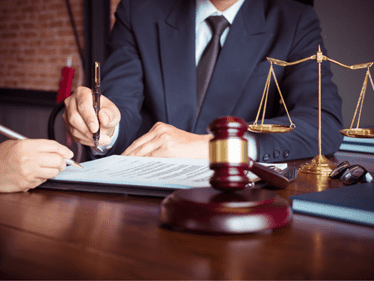
medical malpractice
Atlanta, GA Personal Injury Case Timeline Explained
If you’re considering filing a personal injury lawsuit, you may be wondering what you’re signing up for. A serious injury or a death in the family is already a major event in most people’s lives, requiring months of physical recovery, grief, arguments with insurance companies and, frequently, lots of bills with no way to pay them.
You probably just want to get back to normal, and you might be worried that a lawsuit will do the opposite by prolonging the time you must think about the accident and deal with strangers who might be unfriendly.
And will there be more bills?
While every case is unique, it’s true that the vast majority of personal injury lawsuits take 6 to 18 months to resolve after a client retains counsel, depending upon the length of medical treatment and the complexity of the legal issues involved.
If you’ve hired a competent Georgia personal injury attorney, he or she will do much of the work. Your attorney should serve as a shield between you and the insurance companies, explain every step of the process, investigate the case as necessary, and deal with the bureaucratic and legal side of the case.
Simply put:
Your lawyer works to get you the best possible financial recovery, freeing you to focus on your medical and emotional recovery.
Continue reading to learn more about the steps involved in a typical Georgia personal injury lawsuit. If you’re ready to talk to an experienced injury lawyer about your specific case, don’t hesitate to contact Scholle Law to schedule your free, no-obligation consultation.
Timeline for Personal Injury Case Resolution
Find out the typical duration for resolving personal injury cases and the factors that affect it.

Factors that impact the personal injury lawsuit timeline
There are several factors that might make a case take longer than usual. A few of these factors include:
- Differing opinions of the settlement value of the case by the claimant and the defendant’s insurance company
- The unavailability of key witnesses to give deposition testimony
- Insurance coverage or legal defenses by the defendant’s insurance company that lead its attorney’s to question if their client will have to pay anything to resolve a particular claim
One of the biggest hurdles to any settlement is the accident victim’s physical recovery. Often, one side or the other will have a different view of the injuries, the facts or the evidence that support the injury. There might be medical experts who are consulted to determine the extent of the injuries and how they will impact a person’s life.
If the injury interferes with a person’s ability to earn an income, the case may be valued at a higher amount than an injury that doesn’t interfere with income. Also, the nature of an injury may require more time for a settlement or trial to take place.
Generally, no settlement should be considered until the victim has received a diagnosis and prognosis from his or her doctor, particularly for 1 of the following conditions:
- Spine injury
- Back injury
- Child injuries
- Scars requiring plastic surgery
- Fractured bones
How most personal injury cases are resolved in Georgia
In a personal injury case, you are asking a court to determine whether or not the person you’re suing is financially responsible for causing your injury by doing something that the law doesn’t allow (known as “negligence”). If this standard of proof can be successfully proven, then the defendant will owe the plaintiff financial compensation for that injury.
Often, but not always, a defendant has insurance to cover the costs if they lose the case. As a result, a personal injury lawsuit really involves the insurance company as much as the person who injured you.
The vast majority of personal injury lawsuits settle before they get to court — it’s just a question of when they settle, and for how much money. Approximately 95% of personal injury cases settle prior to trial.
That settlement can happen anytime before court, and even during a trial. You are more likely to see an early settlement if the other side believes your case is strong, which it will determine by exchanging information with your attorney. If the other side disagrees about the case’s value or has other reasons for holding out, the case may take quite a bit longer to fully resolve.
Fortunately, your attorney should handle most of this exchange of information. In fact, insurance companies are not permitted to directly call people who are represented by counsel. However, you may be called upon to give testimony before trial in a formal setting (via a deposition), which you should treat just like giving testimony in court. You may also need to testify in court if the case goes to trial. Your attorney should prepare you for both kinds of testimony.
Asking for adequate compensation for serious injuries
Getting a clear diagnosis and a prognosis for recovery are vitally important steps in your injury lawsuit. In order to know how much damages to ask for, you first need to know exactly what your injuries are and what kinds of costs may be associated with them — both now and in the future.
A personal injury settlement or damage award should include compensation for:
- Medical bills
- Any required assistive devices or home care
- A permanent disability
- Lost earnings (including future earnings)
- Loss of a loved one
- Pain and suffering
It’s difficult to make predictions about which of these costs will be a factor for you before your doctors are able to lay out your recovery in detail and with any confidence. With some serious injuries, it might take quite some time before a doctor feels comfortable making such predictions.
In addition, the defendant in the lawsuit may disagree with some of your claims. In this case, your Georgia personal injury attorney may need to bring medical experts to court to testify about your injuries, which could prolong the lawsuit.
In most cases, it is important to consider a settlement offer because trials are inherently risky. Ultimately, the decision whether or not to settle is yours and yours alone, but it is wise to consult an experienced lawyer who can let you know they think is best in your particular case.
Talk to an experienced personal injury attorney near you about your case
Understand that any honest and trustworthy attorney will not ascribe an exact value or timeline to your case until all of the material facts have been investigated. Once that threshold is met, however, your attorney should be candid with you in discussing the value of a settlement and what you can expect.
If you’re considering a personal injury lawsuit and you’d like to know more about how long we think your case will take, don’t hesitate to consult Scholle Law for answers. We offer free consultations, which are meetings where we listen to your story and give you our best estimation of how we believe pursuing your lawsuit might go. There is no obligation to take it further.
Plus, we take most cases on a contingency fee basis, which means we will be paid after we win for you. In the unlikely event that we don’t win, then you won’t owe us anything. Therefore, you have nothing to lose by talking to us, and potentially a lot to gain.
